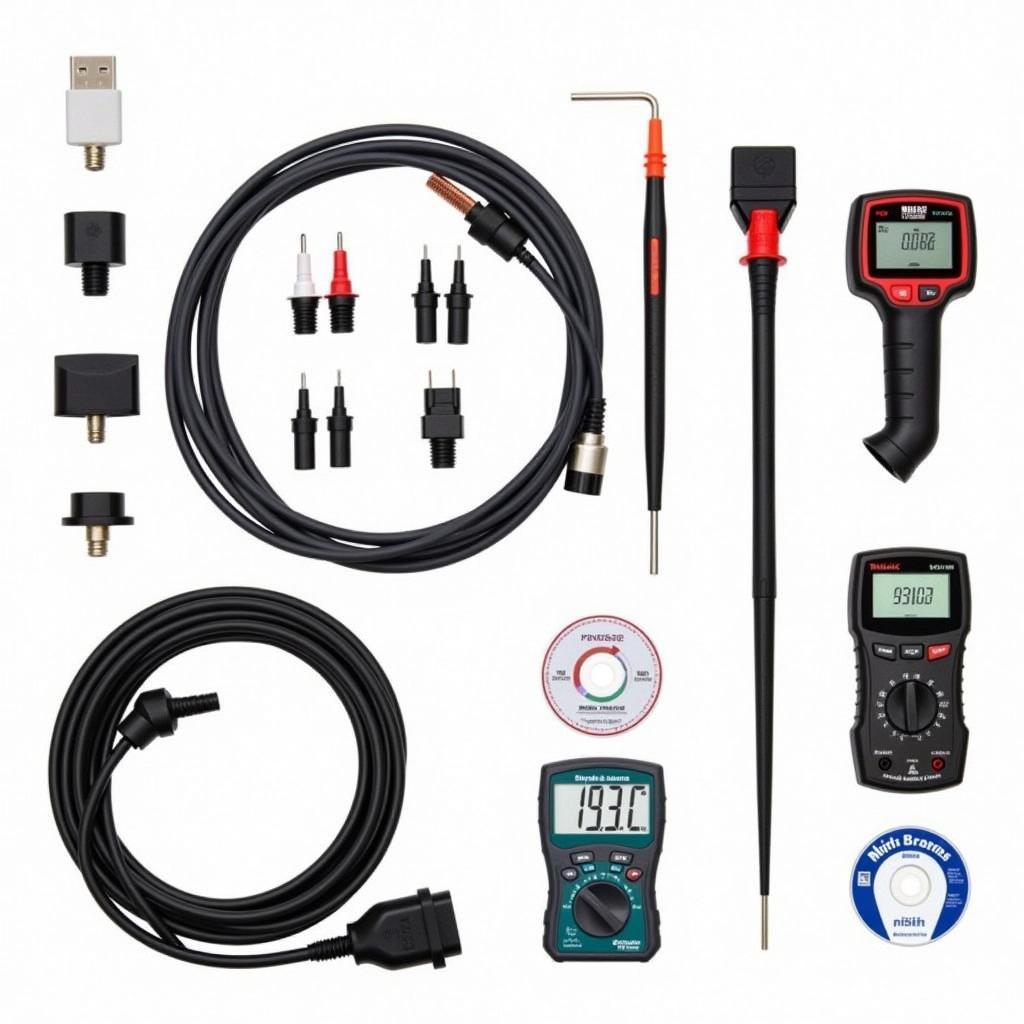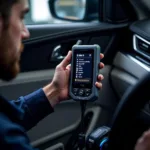A diagnostic kit for cars has become an indispensable tool for both professional mechanics and DIY enthusiasts. As vehicles become increasingly sophisticated, the ability to accurately identify and diagnose problems is crucial for ensuring optimal performance and longevity.
Understanding the Importance of a Car Diagnostic Kit
Before delving into the specifics, it’s important to understand why a diagnostic kit for cars is so valuable. Gone are the days of relying solely on experience and intuition to pinpoint automotive issues. Modern vehicles are equipped with complex electronic systems that control everything from engine performance to safety features. When problems arise, these systems generate diagnostic trouble codes (DTCs) that provide clues about the underlying issue.
A diagnostic kit for cars, especially one with an OBD-II scanner, serves as the bridge between you and your car’s computer system. It allows you to:
- Retrieve and interpret DTCs: Easily read and understand the error codes stored in your car’s computer, pointing you in the right direction for repairs.
- Monitor live data streams: Observe real-time sensor readings for various systems like engine RPM, coolant temperature, and oxygen sensor voltage, helping you identify performance bottlenecks or sensor malfunctions.
- Perform component activations: Test individual components like fuel injectors, solenoids, and actuators to verify their functionality and isolate faulty parts.
Choosing the Right Diagnostic Kit for Your Needs
Selecting the appropriate diagnostic kit depends on your level of expertise and the tasks you intend to perform. Here’s a breakdown of common options:
1. Basic OBD-II Scanners:
- Ideal for car owners and DIY enthusiasts.
- Primarily used to read and clear basic DTCs.
- May offer limited live data viewing capabilities.
- Affordable and widely available.
2. Advanced OBD-II Scanners:
- Geared towards professional mechanics and experienced DIYers.
- Provide access to a wider range of DTCs, including manufacturer-specific codes.
- Offer comprehensive live data monitoring and logging.
- May include advanced features like bi-directional control and coding capabilities.
3. Professional-Grade Diagnostic Kits:
- Designed for specialized automotive workshops and dealerships.
- Cover a wide array of vehicle makes and models.
- Offer the most advanced diagnostic features, including oscilloscope functions, ECU programming, and key programming.
- Require significant investment.
Essential Features to Look for in a Diagnostic Kit
- Wide Vehicle Coverage: Ensure the kit supports your vehicle’s make, model, and year.
- User-Friendly Interface: Opt for a kit with an intuitive menu system and clear display for ease of use.
- Data Logging and Reporting: Choose a kit that allows you to record and save diagnostic data for future reference.
- Regular Software Updates: Select a manufacturer that provides regular software updates to ensure compatibility with the latest vehicle models and diagnostic protocols.
Maximizing the Benefits of Your Diagnostic Kit
- Invest in Ongoing Education: The automotive industry is constantly evolving. Stay updated with the latest diagnostic procedures and technologies.
- Consult Reliable Resources: Numerous online forums, technical manuals, and training courses can provide valuable insights and guidance.
- Understand Your Limitations: While a diagnostic kit is a powerful tool, it’s essential to recognize its limitations and seek professional help when necessary.
Conclusion
A diagnostic kit for cars has become an indispensable asset in today’s technologically driven automotive landscape. Whether you’re a seasoned mechanic or a car enthusiast looking to delve into DIY repairs, investing in the right diagnostic equipment can empower you with the knowledge and capabilities to troubleshoot issues, save money on repairs, and keep your vehicle running smoothly for years to come.


